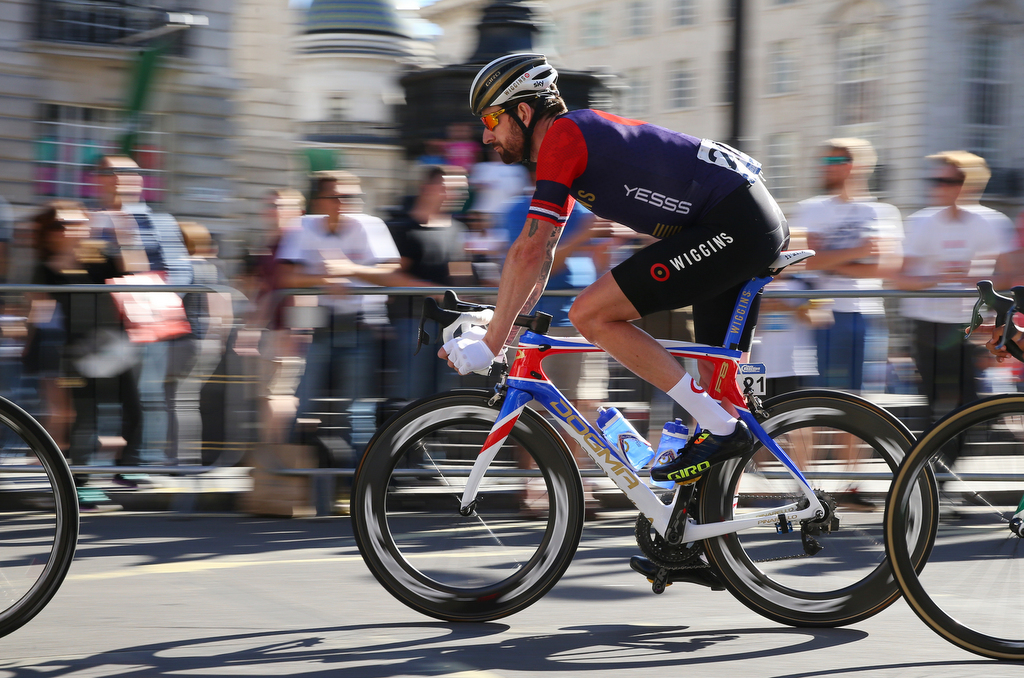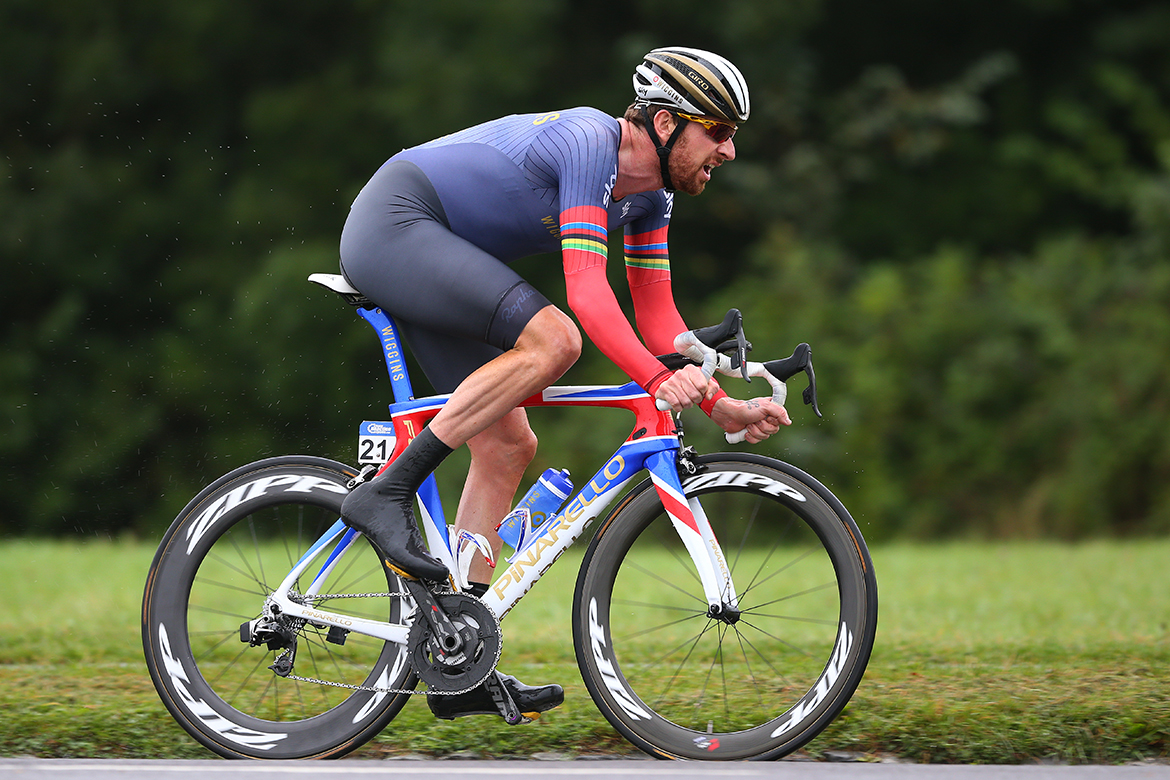Wiggins' TUE under scrutiny before Sunday morning interview
Michael Rasmussen and Dr. Prentice Steffen speak to BBC Newsnight programme
The latest race content, interviews, features, reviews and expert buying guides, direct to your inbox!
You are now subscribed
Your newsletter sign-up was successful





Bradley Wiggins has come under further pressure before he appears on television to explain why he had three Therapeutic Use Exception (TUE) certificates for the power corticoid Triamcinolone Acetonide before riding the Tour de France and Giro d'Italia in 2011, 2012 and 2013.
Tour de France winners Froome and Wiggins named in confirmed 'Fancy Bear' WADA hack
Wiggins spokesperson on WADA leak: 'There's nothing new here'
UCI defends TUE use after Russians hack Wiggins, Froome medical records
Wiggins: Leinders had no part in TUE applications
Wiggins to come out of road retirement for Abu Dhabi Tour
Millar says Wiggins' TUE drugs should be banned
Wiggins to appear on British television to explain TUE controversy
Wiggins says he didn't take triamcinolone to gain an unfair advantage
Brailsford insists Team Sky is '100 per cent a clean operation'
Bradley Wiggins explains TUE use, asthma and allergies
Froome: Impossible to say if Wiggins operated in a grey area
WADA studying ban on corticosteroids after Wiggins controversy
The 2012 Tour de France winner issued two statements last weekend when his TUE data first emerged via the Fancy Bears leaks but with Team Sky and others involved still failing to speak openly about what happen and to fully explain their positions, others have filled the void, raising doubts Wiggins' need for the supposed asthma drug.
The highly respect BBC Newsnight programme stepped away from reporting on politics in Britain and the USA to dedicate a 10-minute slot to the Wiggins TUE story. They spoke to Wiggins doctor during his time at the Garmin team in 2009, Dr. Prentice Steffen, when he finished in the Tour de France, along with former rider and convicted doper Michael Rasmussen, who was eliminated from the 2007 Tour de France after lying about his whereabouts before the race. He has since made a total confession about his complex doping programme and lifts the lid on racing and doping for a Danish newspaper.
While it must be stressed that Wiggins and Team Sky stayed on the right side of legality, with Wiggins' TUE issued for diagnosed asthma and pollen allergies, the whole process has sparked serious questions over the policy towards TUEs, the grey area of corticoid steroid use and transparency.
The timing of the application for the TUE has also raised eyebrows within the cycling community, with two leading experts and Steffen questioning the necessity of needing the steroid in the build-up to major races. Steffen spoke to Cyclingnews earlier in the week and reiterated his thoughts to the BBC.
Though he refused to comment on Wiggins' private medical records, Steffen was said he was surprised he needed this sort of intervention.
"I was surprised to see there were TUEs documented for intramuscular triamcinolone just before three major events - two Tours de France and one Tour d'Italia. You do have to think it is kind of coincidental that a big dose of intramuscular long-acting corticosteroids would be needed at that… exact time before the most important race of the season.
The latest race content, interviews, features, reviews and expert buying guides, direct to your inbox!
"I would say certainly now in retrospect it doesn't look good, it doesn't look right from a health or sporting perspective."
TUE questions
Wiggins' TUE applications are understood to have been made by then team doctor Dr Richard Freeman, who is now team doctor at British Cycling, with Irish journalist David Walsh suggesting that the 2012 injection may have been taken as a precautionary measure rather than much needed treatment.
In each TUE it states that Wiggins underwent a nasal endoscopy in 2011, suggesting he needed more serious intervention to control his allergies. In Wiggins' 2012 autobiography called 'My Time', there is no mention of asthma or allergies and in 2012 he states he was ‘only ill once or twice with minor colds' and ‘barely lost a day's training from it.' This has sparked further questions on his need for the powerful corticoid injection, especially after his supposed strong stance against injections.
The BBC spoke to Dr. John Dickinson, of Kent University, who has apparently worked with more than 1,000 athletes. He said he had never prescribed triamcinolone to an athlete.
"That sort of medication [is] typically reserved for individuals who are in a very severe asthma response and are in need of emergency care which would suggest... that particular individual may be not fit and well to compete in a race at that point in time," he told the BBC.
"I've never been myself involved with an athlete that's needed to go that far in terms of that sort of treatment for an asthmatic condition. We really concentrate on working with our athletes to make sure... they are on the optimal inhaler therapy so that they never need to go to that level of needing to go above or into the TUE world really."
Corticosteroids are very, very strong and performance enhancing
Speaking with the Daily Telegraph in light of Wiggins' use of triamcinolone, David Millar said the corticosteroid was the "most potent" performance-enhancing drug he used in his own career before being suspended and then becoming a out-spoken campaigner against doping. Rasmussen said much the same to the BBC.
"There is no doubt in my mind that corticosteroids are very, very strong and performance enhancing," he said. "It would postpone the sensation of fatigue, increase your recovery speed and most importantly, and quite easily I would drop one or two kg, which is very important when you want to climb mountains. It will drain the body from all excess fat in a quite short period of time. It's a very fast and very effective drug in that sense."
Asked specifically about Wiggins' TUE, Rasmussen said: "Just looking at the drugs and looking at the dates of the injections it looks very much like something that could have happened 10 years ago when I was riding for general classification in the Tour de France.
"If you look solely at the pattern of the TUEs of Bradley Wiggins then you would say that this looks very suspicious. It's something that a rider would do if he wants to perform well in a Grand Tour, something that I would do, something that I did."
Wiggins' representatives did not respond to questions from Newsnight but the BBC confirmed on Friday that Wiggins has spoken to the chat shoe host Andrew Marr for his Sunday morning programme.
In a previously statement, they said: "There's nothing new here. Everyone knows Brad suffers from asthma, his medical treatment is British Cycling and International Cycling Union approved and like all Team GB athletes he follows WADA regulations to the letter."
A spokesman for the UCI repeated its position in a statement to Newsnight, saying: "The management of Therapeutic Use Exemptions in cycling is robust and fully safeguarded. The UCI TUE committee is composed of independent experts in the fields of clinical sports and exercise medicine and the coordination of the committee is handled by the Cycling Anti-Doping Foundation, the independent body mandated by the UCI to carry out anti-doping in the sport."

